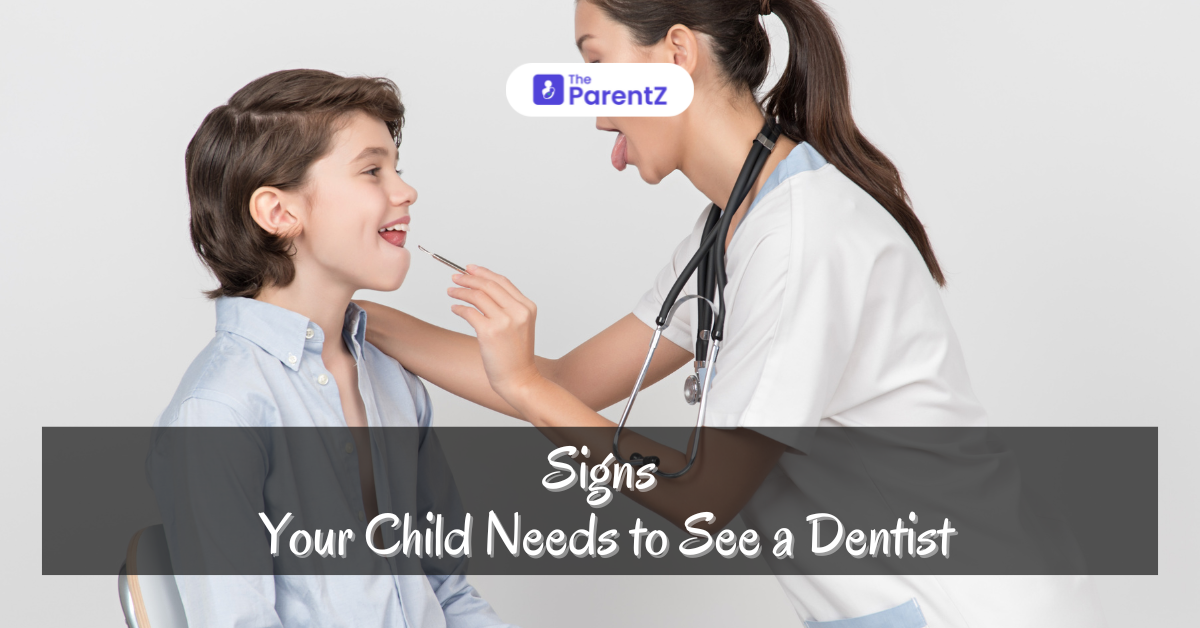Ensuring your child’s dental health is vital for their overall well-being. While regular dental check-ups are recommended, there are specific signs indicating when it’s essential to see a dentist promptly. Recognizing these signs early can prevent minor issues from developing into more serious problems. Here’s a comprehensive guide to help you identify when your child needs to visit a dentist.
Signs Your Child Needs to Visit the Dentist
1. Tooth Pain or Sensitivity
Tooth pain or sensitivity is one of the most apparent signs that your child needs dental attention. If your child complains of discomfort while eating, drinking, or brushing, it may indicate cavities, an infection, or other dental issues. Even mild sensitivity should be evaluated, as it can signify enamel erosion or early signs of tooth decay.
2. Visible Spots or Stains on Teeth
White, brown, or black spots on your child’s teeth can indicate the beginning stages of tooth decay. These discolorations are often caused by the demineralization of enamel and can progress into cavities if left untreated. Early intervention can prevent the need for more extensive dental work.
3. Swollen or Bleeding Gums
Healthy gums should be pink and firm. Swollen, red, or bleeding gums can be signs of gum disease, such as gingivitis, or other oral infections. If your child’s gums bleed regularly when brushing or flossing, it’s essential to consult a dentist. Addressing gum issues early can prevent more severe conditions like periodontitis.
4. Bad Breath
Persistent bad breath (halitosis) in children, even after brushing and flossing, can indicate underlying dental issues. Bad breath may result from poor oral hygiene, tooth decay, or gum disease. It can also signal other health problems, such as sinus infections or gastrointestinal issues. A dental visit can help determine the cause and appropriate treatment.
5. Loose or Shifting Teeth
While it’s normal for children to lose baby teeth, especially around ages 6 to 12, loose teeth outside this typical range can be a concern. Premature loss of baby teeth or adult teeth becoming loose can indicate trauma, infection, or underlying dental conditions. A dentist can evaluate and address the cause to ensure proper oral health.
6. Jaw Pain or Clicking
Jaw pain, difficulty chewing, or a clicking sound when opening or closing the mouth can be signs of temporomandibular joint (TMJ) disorders or other dental issues. These symptoms may also indicate tooth misalignment or bruxism (teeth grinding). A dentist can diagnose the problem and recommend appropriate treatment options, such as orthodontics or a mouthguard.
7. Delayed Tooth Eruption
If your child’s teeth are not appearing as expected, it could indicate a dental issue. Delayed tooth eruption can result from various factors, including genetics, nutrition, or underlying medical conditions. A dentist can assess the situation and provide guidance on potential treatment options.
8. Mouth Sores or Lesions
Sores, ulcers, or lesions in the mouth that do not heal within a week can be a sign of infection, irritation, or other oral health concerns. These can be painful and may affect your child’s ability to eat and speak comfortably. A dentist can diagnose the cause and recommend treatment to alleviate discomfort and promote healing.
9. Teeth Grinding
Bruxism, or teeth grinding, often occurs during sleep and can lead to tooth wear, jaw pain, and headaches. If you notice your child grinding their teeth or if they complain of a sore jaw upon waking, a dental visit is necessary. A dentist can provide solutions like a night guard to protect your child’s teeth.
10. Dry Mouth
A dry mouth can result from reduced saliva production, which is essential for maintaining oral health. Saliva helps neutralize acids, wash away food particles, and prevent tooth decay. If your child frequently complains of a dry mouth, it could lead to cavities and gum disease. A dentist can identify the cause and suggest appropriate remedies.
Conclusion
Remember, good oral hygiene habits at home, combined with professional dental care, lay the foundation for a lifetime of healthy teeth and gums.





Be the first one to comment on this story.